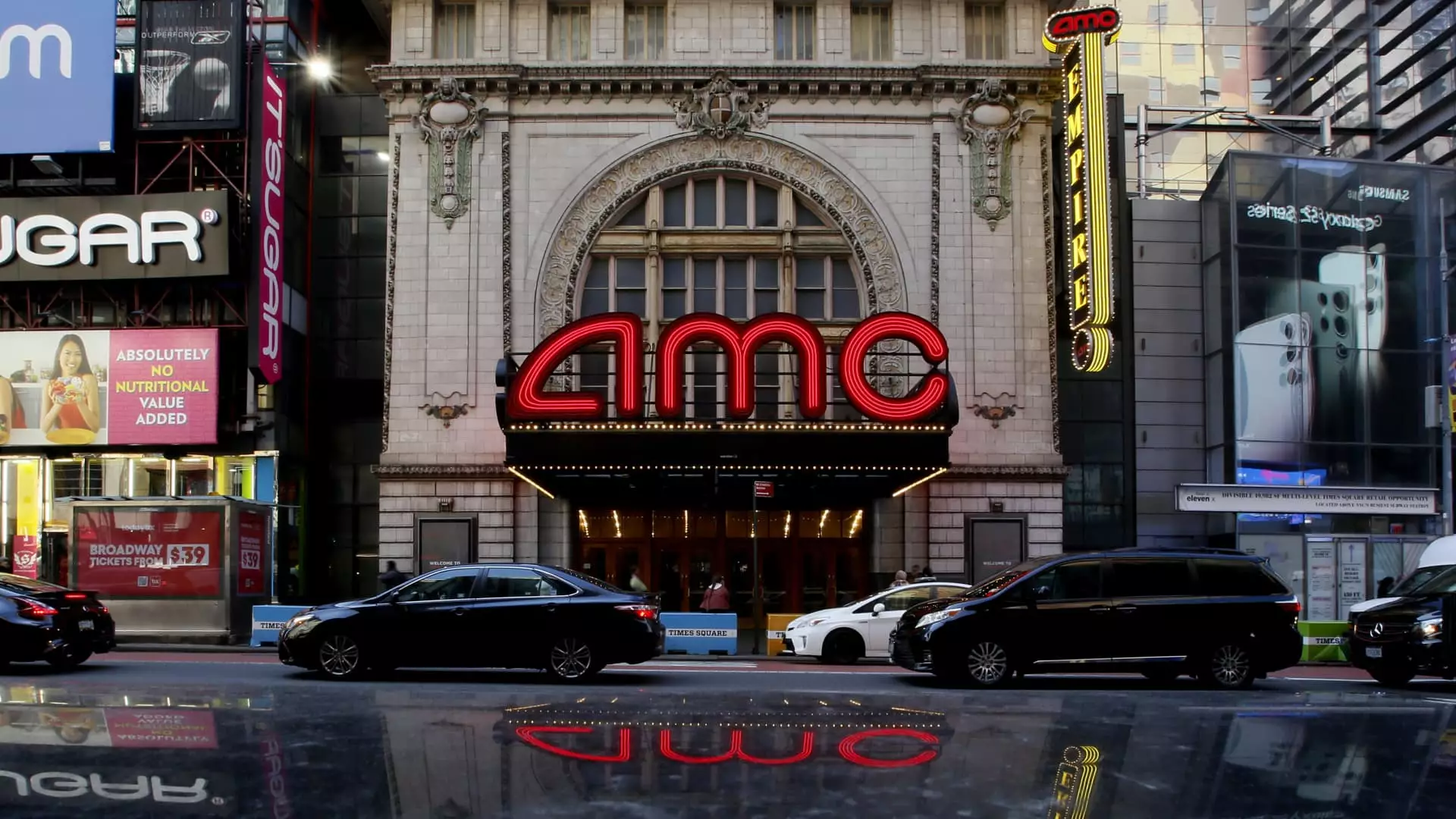AMC Entertainment recently experienced a surge in its stock price alongside GameStop, following the return of “Roaring Kitty,” also known as Keith Gill. This led to AMC shares more than doubling since Friday’s close, reaching above $6 in afternoon trading on Tuesday. The company has a history of rallying retail investors around its stock in times of need, allowing it to avoid bankruptcy. In 2015, CEO Adam Aron made three major acquisitions – Carmike, Odeon, and Nordic theater chains – totaling about $3 billion. While these acquisitions expanded AMC’s theater network, they also increased the company’s debt load, leaving it vulnerable during the pandemic.
Since the beginning of 2022, AMC has paid down nearly $1 billion of its debt, but around $4.6 billion still remains. The company faces significant debt maturities, with $2.96 billion due in 2026 presenting a major challenge. Wedbush analyst Alicia Reese believes that renegotiating some of the debt may be possible, but extending maturities could be necessary. Lenders have shown willingness to renegotiate terms, but a higher share price could lead to better deals. Currently, AMC pays about $100 million in interest expenses every quarter, impacting its ability to generate profits.
Despite the challenges posed by its debt load, AMC raised $250 million of new equity capital through a recent stock offering. This move coincided with the resurgence of the meme stock craze, allowing the company to capitalize on the heightened interest in its stock. The cinema chain sold 72.5 million shares at an average price of $3.45 per share. Analysts like James Goss from Barrington Research see this as an opportunity for AMC to boost liquidity, reduce debt, and attract institutional support. By leveraging the current market environment, AMC aims to strengthen its balance sheet and position itself for long-term stability.
AMC’s ability to navigate through the second meme craze and address its debt challenges will be crucial in determining its future success. The company must strike a balance between reducing debt, managing expenses, and pursuing growth opportunities. With the box office still recovering from pandemic-related shutdowns, AMC faces ongoing challenges in generating revenue and controlling costs. Analysts emphasize the importance of leveraging market trends to bolster the company’s financial position and enhance investor confidence. By proactively addressing its debt obligations and capitalizing on market opportunities, AMC can position itself for sustainable growth in the evolving entertainment landscape.
AMC Entertainment’s ability to navigate the complexities of the current market environment will be a defining factor in its long-term success. By strategically managing its debt, capitalizing on market opportunities, and adapting to changing industry dynamics, AMC can position itself as a resilient player in the entertainment sector. The company’s recent stock surge is a testament to its ability to attract investor interest, but sustainable growth will require a strategic approach to financial management and operational efficiency. As AMC continues to evolve in an ever-changing market landscape, its ability to leverage emerging trends and capitalize on investor sentiment will be critical to its future performance.


Leave a Reply